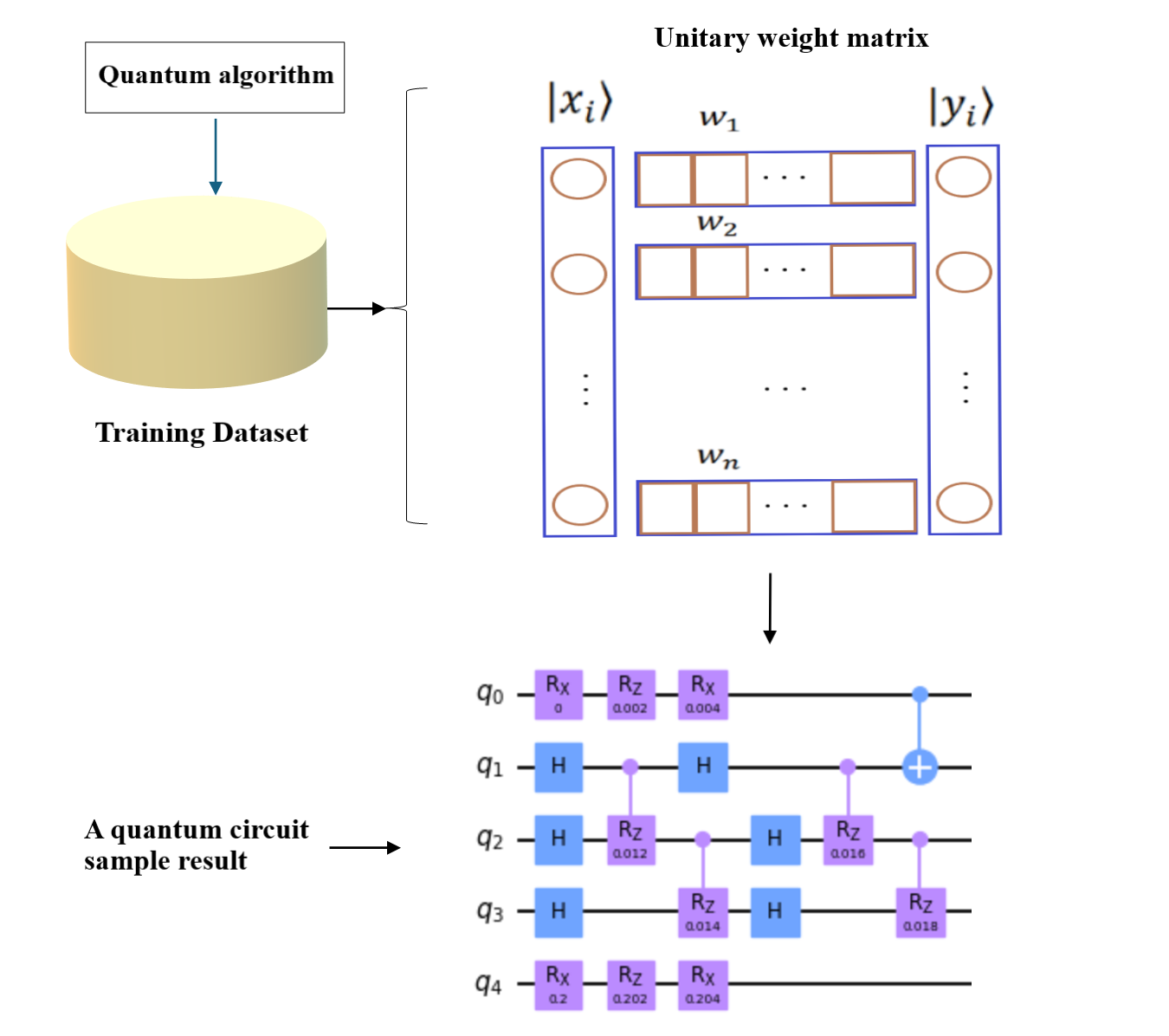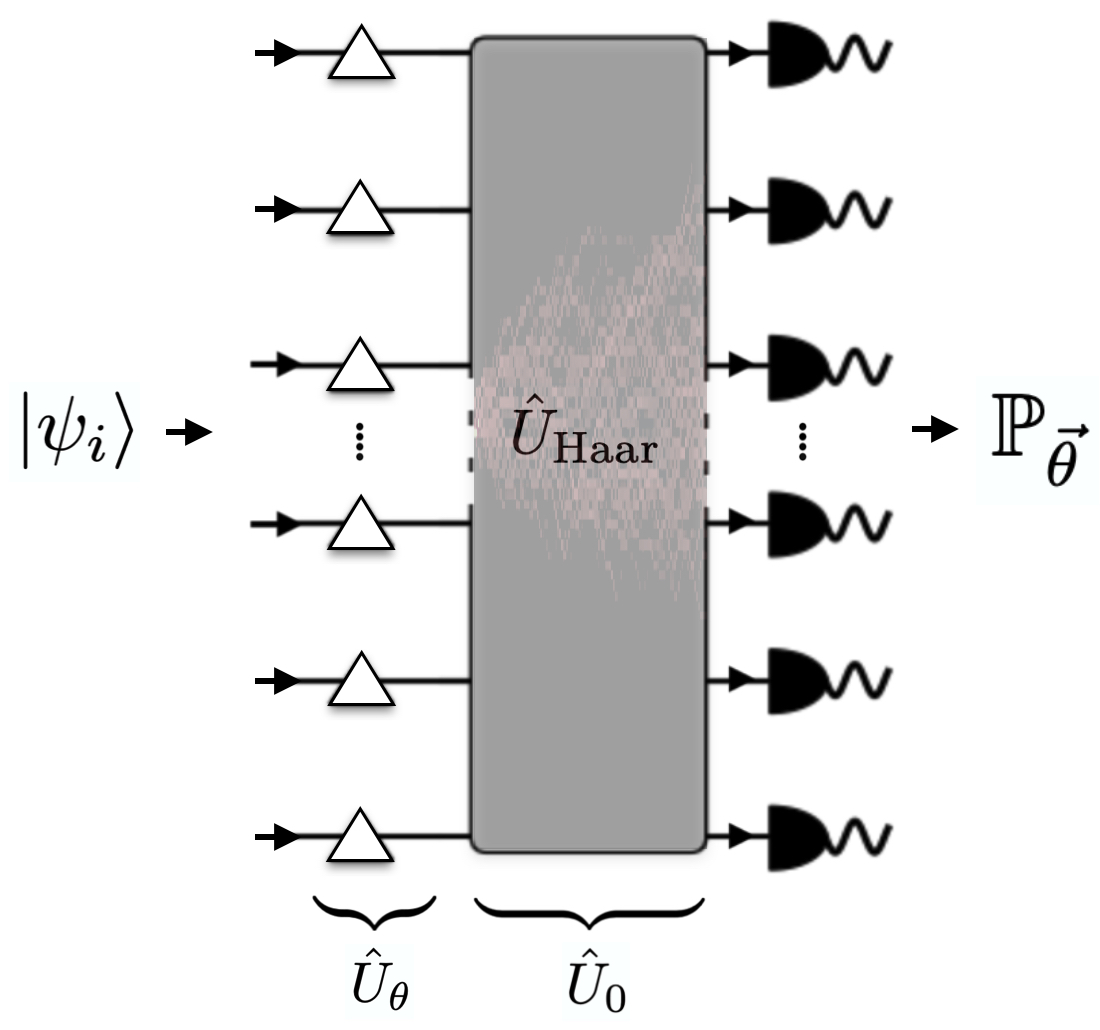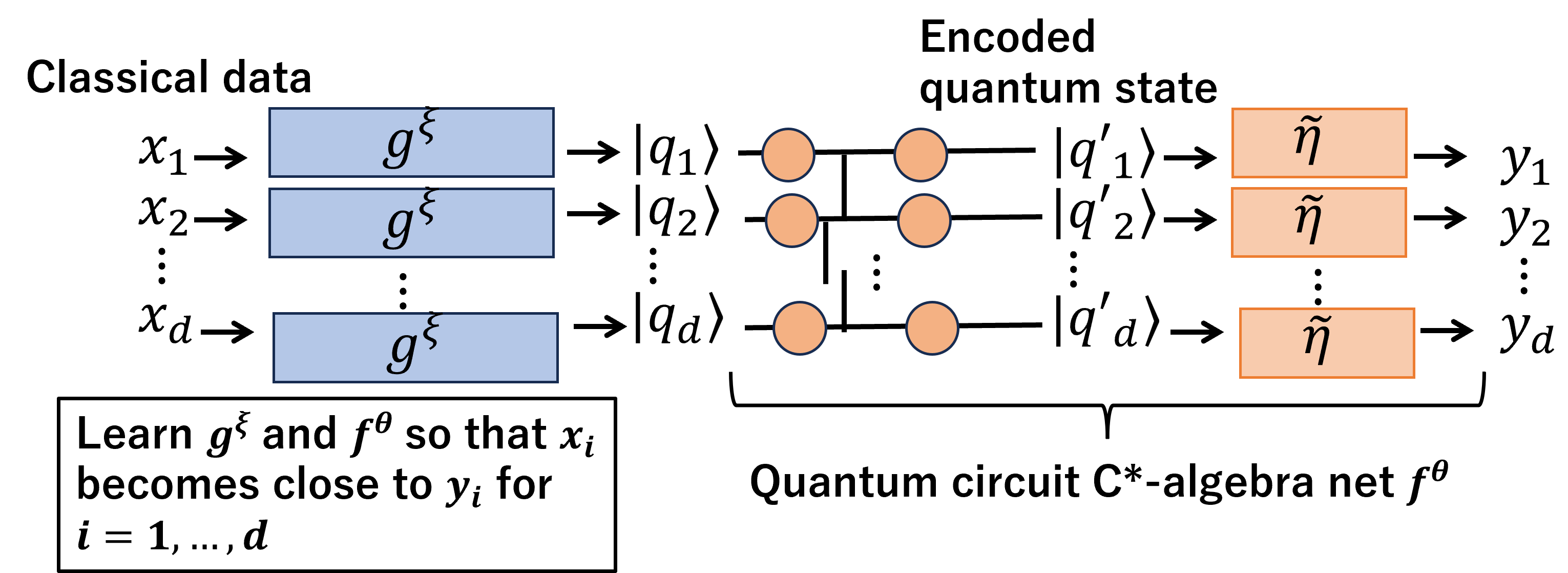Optimal Quantum Circuit Design via Unitary Neural Networks

0

Sign in to get full access
Overview
- Proposes a novel method for designing optimal quantum circuits using unitary neural networks
- Demonstrates the ability to learn unitary transformations and efficiently compile quantum circuits
- Evaluates the performance of the proposed approach on various quantum circuit synthesis tasks
Plain English Explanation
The paper presents a technique for designing efficient quantum circuits using a type of neural network called a "unitary neural network". Quantum computers operate using quantum mechanical principles, which allow them to perform certain computations much faster than classical computers. However, programming quantum computers is challenging, as it requires carefully designing the sequence of operations (called a "quantum circuit") that will achieve the desired computation.
The researchers show that by training a neural network to learn how to perform these unitary transformations, they can then use the trained network to efficiently compile new quantum circuits. This means they can automatically generate the optimal sequence of operations to achieve a desired quantum computation, without having to design the circuit manually.
The paper demonstrates the effectiveness of this approach on several benchmark tasks, showing that the unitary neural network can produce high-quality quantum circuits that outperform traditional circuit synthesis methods. This represents an important step forward in making quantum computing more accessible and practical, by automating a key part of the circuit design process.
Technical Explanation
The paper introduces a novel approach for quantum circuit synthesis using unitary neural networks. Unitary neural networks are a type of neural network architecture that can learn to represent unitary transformations, which are a fundamental building block of quantum circuits.
The key idea is to train a unitary neural network to learn the mapping between a desired unitary transformation and the corresponding quantum circuit that implements it. This is done by parameterizing the unitary neural network using a series of quantum gates, which are the basic operations in a quantum circuit.
During training, the network is optimized to minimize the difference between the unitary transformation represented by the neural network and the target unitary transformation. Once trained, the network can then be used to efficiently compile new quantum circuits by directly outputting the sequence of quantum gates that implement a desired unitary transformation.
The paper evaluates this approach on several quantum circuit synthesis benchmarks, including random unitary transformations and common quantum subroutines like the Quantum Fourier Transform. The results show that the unitary neural network approach can produce high-quality quantum circuits that outperform traditional synthesis methods in terms of circuit depth and gate count.
Critical Analysis
The paper presents a promising approach for automating the design of quantum circuits, which is an important challenge in making quantum computing more practical and accessible. The use of unitary neural networks to learn the mapping between unitary transformations and quantum circuits is a clever and well-motivated idea.
However, the paper does not address some potential limitations and areas for further research. For example, it is not clear how well the approach would scale to larger quantum systems with more qubits, or how robust the trained networks would be to noise and imperfections in the underlying quantum hardware.
Additionally, the paper focuses on synthesizing optimal circuits for a given unitary transformation, but does not consider the broader problem of mapping a desired quantum algorithm or application onto an efficient circuit. This higher-level circuit design challenge remains an important open problem.
Further research is also needed to better understand the capabilities and limitations of unitary neural networks, as well as to explore alternative neural network architectures and training approaches for quantum circuit synthesis.
Conclusion
This paper presents a novel method for designing optimal quantum circuits using unitary neural networks. By training a neural network to learn the mapping between unitary transformations and quantum circuits, the approach can efficiently compile new circuits for desired computations.
The results demonstrate the effectiveness of this approach on several benchmark tasks, suggesting that unitary neural networks could be a valuable tool for automating a key step in the quantum circuit design process. This represents an important advancement in making quantum computing more accessible and practical, by reducing the burden on human experts to manually design complex quantum circuits.
While the paper does not address all the challenges in quantum circuit design, it provides a promising foundation for further research and development in this area. Continued progress in this direction could help unlock the full potential of quantum computing for a wide range of applications.
This summary was produced with help from an AI and may contain inaccuracies - check out the links to read the original source documents!
Related Papers


0
Optimal Quantum Circuit Design via Unitary Neural Networks
M. Zomorodi, H. Amini, M. Abbaszadeh, J. Sohrabi, V. Salari, P. Plawiak
The process of translating a quantum algorithm into a form suitable for implementation on a quantum computing platform is crucial but yet challenging. This entails specifying quantum operations with precision, a typically intricate task. In this paper, we present an alternative approach: an automated method for synthesizing the functionality of a quantum algorithm into a quantum circuit model representation. Our methodology involves training a neural network model using diverse input-output mappings of the quantum algorithm. We demonstrate that this trained model can effectively generate a quantum circuit model equivalent to the original algorithm. Remarkably, our observations indicate that the trained model achieves near-perfect mapping of unseen inputs to their respective outputs.
Read more8/26/2024


0
Quantum Circuit Synthesis and Compilation Optimization: Overview and Prospects
Yan Ge, Wu Wenjie, Chen Yuheng, Pan Kaisen, Lu Xudong, Zhou Zixiang, Wang Yuhan, Wang Ruocheng, Yan Junchi
Quantum computing is regarded as a promising paradigm that may overcome the current computational power bottlenecks in the post-Moore era. The increasing maturity of quantum processors, especially superconducting ones, provides more possibilities for the development and implementation of quantum algorithms. As the crucial stages for quantum algorithm implementation, the logic circuit design and quantum compiling have also received significant attention, which covers key technologies such as quantum logic circuit synthesis (also widely known as quantum architecture search) and optimization, as well as qubit mapping and routing. Recent studies suggest that the scale and precision of related algorithms are steadily increasing, especially with the integration of artificial intelligence methods. In this survey, we systematically review and summarize a vast body of literature, exploring the feasibility of an integrated design and optimization scheme that spans from the algorithmic level to quantum hardware, combining the steps of logic circuit design and compilation optimization. Leveraging the exceptional cognitive and learning capabilities of AI algorithms, one can reduce manual design costs, enhance the precision and efficiency of execution, and facilitate the implementation and validation of the superiority of quantum algorithms on hardware.
Read more7/2/2024


0
Quantum consistent neural/tensor networks for photonic circuits with strongly/weakly entangled states
Nicolas Allegra
Modern quantum optical systems such as photonic quantum computers and quantum imaging devices require great precision in their designs and implementations in the hope to realistically exploit entanglement and reach a real quantum advantage. The theoretical and experimental explorations and validations of these systems are greatly dependent on the precision of our classical simulations. However, as Hilbert spaces increases, traditional computational methods used to design and optimize these systems encounter hard limitations due to the quantum curse of dimensionally. To address this challenge, we propose an approach based on neural and tensor networks to approximate the exact unitary evolution of closed entangled systems in a precise, efficient and quantum consistent manner. By training the networks with a reasonably small number of examples of quantum dynamics, we enable efficient parameter estimation in larger Hilbert spaces, offering an interesting solution for a great deal of quantum metrology problems.
Read more6/5/2024


0
Quantum Circuit $C^*$-algebra Net
Yuka Hashimoto, Ryuichiro Hataya
This paper introduces quantum circuit $C^*$-algebra net, which provides a connection between $C^*$-algebra nets proposed in classical machine learning and quantum circuits. Using $C^*$-algebra, a generalization of the space of complex numbers, we can represent quantum gates as weight parameters of a neural network. By introducing additional parameters, we can induce interaction among multiple circuits constructed by quantum gates. This interaction enables the circuits to share information among them, which contributes to improved generalization performance in machine learning tasks. As an application, we propose to use the quantum circuit $C^*$-algebra net to encode classical data into quantum states, which enables us to integrate classical data into quantum algorithms. Numerical results demonstrate that the interaction among circuits improves performance significantly in image classification, and encoded data by the quantum circuit $C^*$-algebra net are useful for downstream quantum machine learning tasks.
Read more4/10/2024